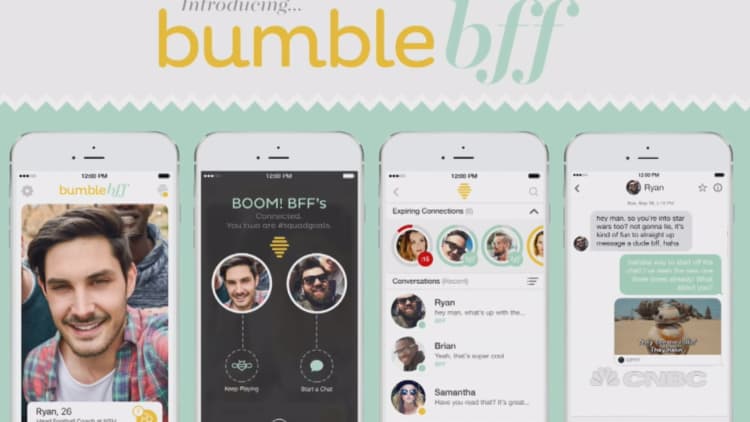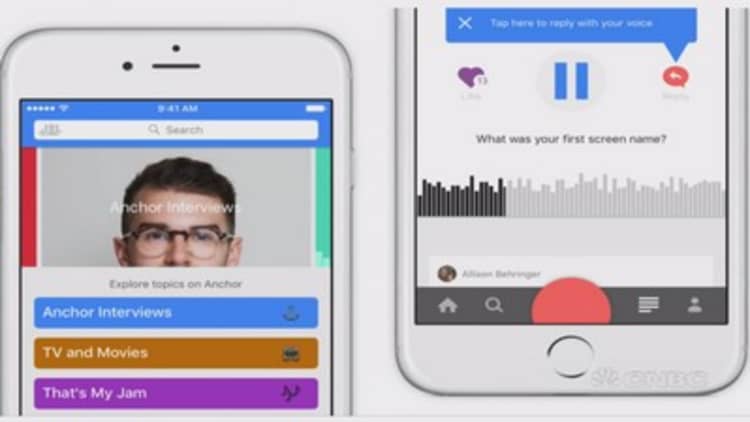We're living in a digitally connected age. Facebook and Snapchat keep us in constant touch with friends. Twitter, Instagram and Medium allow us to follow the ideas and images of those we may not know.
These new media aren't going anywhere. They're too massive (Facebook has more than 1.5 billion users) and too entrenched in our lives.
But now entrepreneurs are trying to figure out the next phase of friendship and communication, and they're using high-tech tools to achieve some very old-fashioned connections.
When Whitney Wolfe launched her dating app Bumble into a crowded field a year and a half ago, she aimed to stand out with a new angle: Requiring women to make the first move. But she was surprised to find that people were finding friends on Bumble, so she just launched a new feature: Bumble for Friends.
"When you watch and observe your user base you have to evolve with them, to give them what they're seeking," she said.

Wolfe insists she's not looking to compete with Facebook, but rather to create a complementary tool. "We really want to bring new people together, and hopefully once we bring them together they can add each other on Facebook and keep the relationship going," she said.
The tool is designed for adults who have just moved, she said. And so far it's off to a great start. In its first few days more than 90 percent of Bumble's 3 million-plus users activated the friend finder, drawing more than 2.5 million swipes on the app in its first few days.
"Often times people don't really go out, because they are so engaged online," said Wolfe. "We really wanted to bring [socializing] back to life, to give you access to those people."

Bringing the kinds of conversations that happen on Twitter to life, with audio, is the goal of Anchor, another app that drew a lot of attention at SXSW. Anchor is called an "audio-based social network," probably best understood as a podcasting version of Twitter. The free app lets users post audio to share with friends, or with the world, as one does on Twitter. Others can listen, share and respond, similar to interactions on Facebook but with voices instead of text.
"There have been a lot of photo [sharing] apps over the past few years, lots of video apps, but there haven't been too many doing voice," said Anchor CEO Mike Mignano. "The timing is right for someone to come in and democratize the voice medium."
Mignano said he thinks as long as the app is easy to use, people will want to be part of a social conversation: "Everyone knows how to talk, this is how we communicate, this is natural conversation. So I think Anchor could be used by everyone," he said.
There have been reports on the death of the phone call since 2010, while the amount of texting and emailing continues to rise. Now it seems people have a new reason to use their phone's microphone, to reach a much bigger audience. It's like the old-fashioned telephone party line for the digital age.




